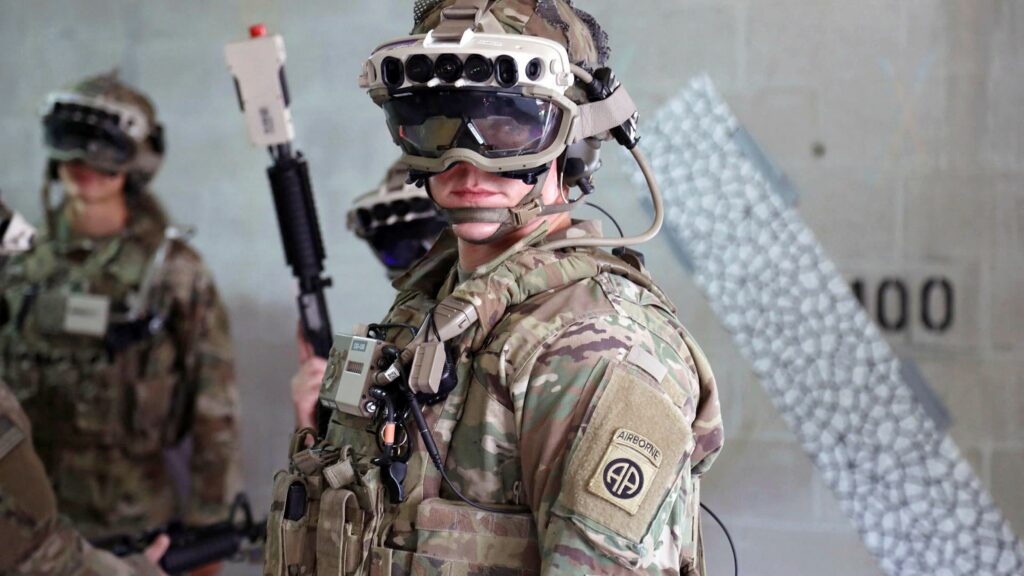Tech start-ups struggle to break into the Pentagon


Modern warfare, like most walks of life, is drowning in data.
Krissy Holst, a former counter-intelligence analyst at the CIA, says Russia’s invasion of Ukraine is “probably going to be the most documented war we’ve seen”. The deluge of real-time information online, including from social networks and messaging apps, could yield important intelligence — not just for military analysts, but for companies and other organisations concerned about the safety of staff or reliability of supply chains. But, she adds, “separating signal from noise in the fog of war is overwhelming”.
San Francisco-based AI start-up Primer, where Holst now works, is one of many young tech businesses that have seen the business opportunity in national defence. It trawls thousands of sources online, using natural language processing to read and try to make sense of the vast amount of “open source intelligence”.
Yet US efforts in recent years to tap the Silicon Valley innovation machine for national defence have been underwhelming. Tech entrepreneurs and investors complain of struggling to win significant business from the Pentagon and, despite the scale of the near-$800bn US annual defence budget, there have been few “DefenceTech” success stories.
Katherine Boyle, one of the best-known venture capitalist in the sector, recently summed up the frustration. If the Pentagon doesn’t find a better way to work with start-ups, she tweeted, it won’t be long before “founders walk away and private capital dries up”.
Ash Carter as defence secretary sought to build bridges between the Pentagon and Silicon Valley back in 2015. His effort is credited with generating a pipeline of early-stage technologies, and it has become much easier to win “starter” contracts from the military, for instance to build a prototype.
Entrepreneurs and investors, however, accuse military leaders of engaging in “innovation theatre” — paying lip service to the importance of disruptive technology while holding back the vast bulk of their budgets for traditional, large-scale programmes from incumbent contractors. If anything, the new military support for early-stage companies has made life even harder, since it has provided the oxygen for many more competitors without generating significant follow-on business.
The reasons for this failure partly echo the sort of cultural obstacles that any large organisation faces when dealing with an innovative start-up. The “not invented here” syndrome and old ways of doing business are powerful.
Both the data analytics group Palantir and Elon Musk’s SpaceX resorted to suing the Pentagon for the right to compete for business. Also, the military procurement process does not match the speed at which start-ups need to move. It takes two years to land a serious contract. That’s about the time between funding rounds for a start-up, says Primer chief executive Sean Gourley, meaning entrepreneurs seeking out military business essentially have to bet their company on being right on target.
Joe Lonsdale, a founder of Palantir, says this has made it harder to raise venture capital, and that the small group of successful start-ups working in the defence sector relied on billionaire founders in their early days. These include Palantir (the brainchild of Peter Thiel), SpaceX and Anduril (Palmer Luckey, who sold his virtual reality start-up, Oculus, to Facebook).
It’s not entirely the fault of the customers. Some technologies are not ready for military use. Gourley says Silicon Valley often hasn’t done the hard work, like training general AI models on military data or adequately securing systems. Some Silicon Valley companies, like Google, have turned away from such business under pressure from their staff, or have not spent the time building links to the military.
The picture is not uniformly dire. For start-ups with staying power, the rewards are substantial. Anduril earlier this year won a near-$1bn counter-drone contract from the US Special Operations Command. One of Lonsdale’s bets, Epirus, which uses directed-energy beams to destroy drones, has just joined the rarefied group of DefenceTech unicorns, with a funding round last month that valued it at $1.35bn.
Above all, Silicon Valley’s founders and investors are counting on the global security crisis to focus customers’ minds — like Alex Karp, boss of Palantir, who this week used the Ukraine crisis to urge European governments to buy more software for defence.
If the US and other governments can learn from the mistakes of the past, defence could be a booming market for innovative technologies. But that remains a big “if”.
richard.waters@ft.com